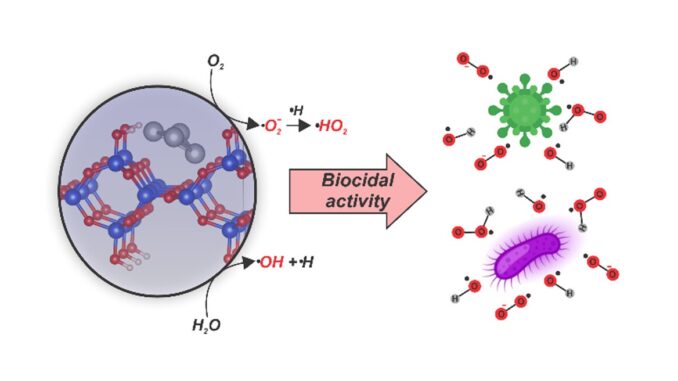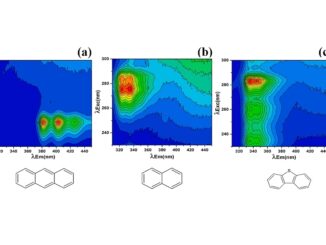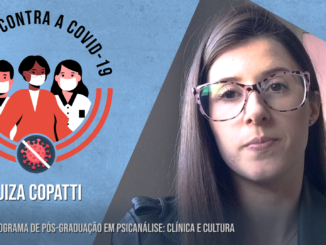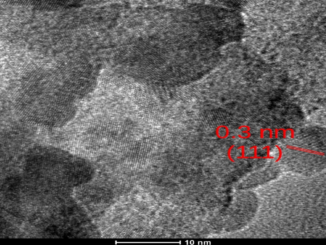
Unraveling the Intrinsic Biocidal Activity of the SiO2–Ag Composite against SARS-CoV-2: A Joint Experimental and Theoretical Study
Abstract: The COVID-19 pandemic has emerged as an unprecedented global healthcare emergency, demanding the urgent development of effective materials to inactivate the SARS-CoV-2 virus. This research was planned to disclose the remarkable biocidal activity of SiO2–Ag composites incorporated into low-density polyethylene. For this purpose, a joint experimental and theoretical [based on first-principles calculations at the density functional theory (DFT) level] study is performed. Biological assays showed that this material eliminatesStaphylococcus aureusand SARS-CoV-2 virus in just 2 min. Here, we investigate a previously unexplored process that we postulate may occur along the O2 and H2O adsorption and activation processes of pure and defective SiO2–Ag surfaces for the generation of reactive oxygen species (ROS). The obtained results help us to predict the nature of ROS: superoxide anion radicals, •O2–, hydroxyl radicals, •OH, and hydroperoxyl radicals, •HO2, that destroy and degrade the structure of the SARS-COV-2 virus. This is consistent with the DFT studies, where the energetic, electronic, and magnetic properties of the intermediates show a feasible formation of ROS. Present findings are expected to provide new insights into the relationship among the structure, property, and biocidal activity of semiconductor/metal SiO2–Ag composites.
Author(s): de Oliveira, M. C.; Assis, M.; Simoes, L. G. P.; Minozzi, D. T.; Ribeiro, R. A. P.; Andres, J.; Longo, E.
ACS Appl. Mater. Interfaces
Published: January 25, 2023
DOI: https://doi.org/10.1021/acsami.2c21011
CDMF
The CDMF, hosted at the Federal University of São Carlos (UFSCar), is one of the Research, Innovation and Dissemination Centers (RIDC) supported by the São Paulo State Research Support Foundation (Fapesp), and also receives investment from the National Council Scientific and Technological Development (CNPq), from the National Institute of Science and Technology of Materials in Nanotechnology (INCTMN).




